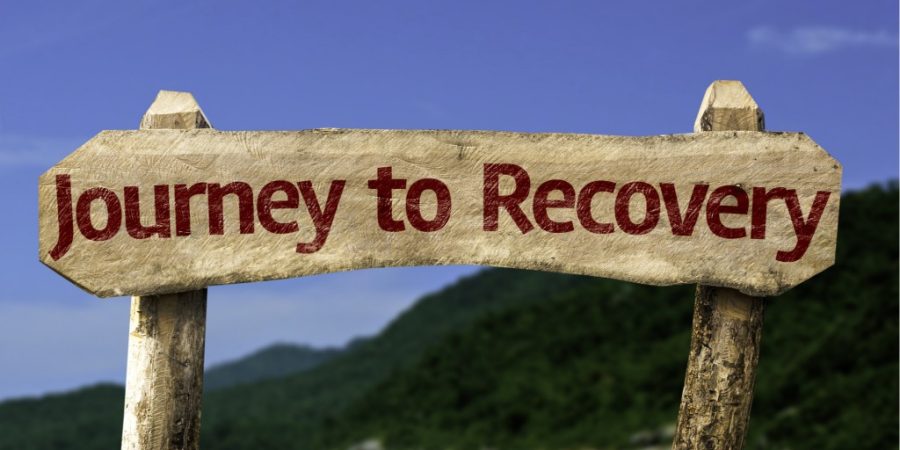
The substance abuse recovery process looks different for everybody who goes through it, but this is especially true for veterans, who often struggle with co-occurring mental health conditions on top of addiction. So what exactly are the stages of recovery for veterans? Below, we’ll detail all of the stages of recovery for veterans to demonstrate that substance abuse recovery is possible.
Table of Contents
The Beginning Stages of Recovery

When it comes to the early stages of alcohol recovery or healing from drug addiction, there are two different steps: precontemplation and the contemplation stage of recovery. For veterans who are using drugs or alcohol on a regular basis, precontemplation could come in the form of fleeting thoughts that they might be struggling with an addiction. But precontemplation does not automatically lead to getting help.
Instead, precontemplation thoughts are often met with strong feelings of rejection. You might recognize that you are drinking more than usual, for example, but then push away those worries because you aren’t ready to stop using the addictive substance. You might even think that you function better with drugs and alcohol. After all, when you take away drugs or alcohol, you are often left with mental health symptoms that you aren’t sure how to cope with in healthy ways.
For many veterans, turning to alcohol or drugs is actually an escape from the pain of untreated mental health conditions like anxiety, depression, and post-traumatic stress disorder (PTSD). Having these conditions on top of struggles with substance use could lead to serious consequences throughout all areas of your life. In fact, most veterans aren’t even sure if they can get the help they need. Unfortunately, veterans who don’t receive help face suicidal thoughts and actions at a higher rate than the general population.
When you begin to face the true effects of these consequences—such as losing your job, having strained relationships with loved ones, or not being able to leave the house due to emotional triggers—you will start to enter the contemplation stage of recovery. The main difference between precontemplation and contemplation is that you go from having occasional doubts about your behaviors and symptoms to finally understanding that you do in fact need help.
Once you have no choice but to admit that you need help with your addiction and co-occurring disorders, you might start looking for solutions. Luckily, there are drug and alcohol recovery programs that are made specifically for veterans who need extra support during this healing process, which can take you through to the next stages of recovery to begin to make real changes.
Stages of Change in Recovery
Of course, addiction recovery involves more than just thinking that you need help and then automatically being healed. Rather, the stages of change in recovery are important steps that help you to prepare and to take action in your own substance abuse recovery process.
During the preparation stage of recovery, people often start to find outside services to help them. This is where the recovery centers for veterans play an essential role. To fully prepare for your time in an addiction and mental health recovery center, you must steel yourself physically and emotionally for the challenges ahead. Only then can you dive head-first into the action stage of recovery.
The action stage of recovery usually begins with a safe detoxification process to physically remove all addictive substances from your system. It’s important to detox under supervision and with medical professionals nearby so that you do not suffer from serious withdrawal symptoms. From there, you can begin to take action in the specific programs recommended to you by mental health experts. These often include:
- One-on-one counseling sessions
- Cognitive behavioral therapy (CBT)
- Eye movement desensitization and reprocessing (EMDR) therapy
- Group sessions
- Family therapy
Specialized therapies like CBT and EMDR are particularly helpful for veterans who need to heal from PTSD or other mental health conditions on top of addiction. But regardless of the therapies you choose, this stage of action in the recovery process can revolutionize your life for the better.
The Final Stages of Recovery

Something that is important to note when it comes to the stages of recovery for veterans is that relapse happens—in fact, relapse is a natural part of the recovery process for the majority of people who are healing from addiction. Of course, relapsing can feel discouraging, especially after all the work you’ve put into the action stage of recovery. However, the final stages of recovery involve getting back on your feet after a relapse and learning how to maintain sobriety through future challenges.
Maintaining sobriety is no easy task. It is a lifelong journey that will come with its own ups and downs. But maintenance does get easier, especially when you have the necessary skills to cope with any triggers that pop up through times of stress. Therefore, it is key to be part of a recovery program that focuses on supporting you well after you leave the facility.
Skill-building activities such as nutritional planning and job preparedness training can help you to:
- Keep a healthy lifestyle
- Feel physically and mentally strong
- Find jobs that fit your specialized skills
- Build healthy relationships with the people around you
- Reintegrate into society.
Moreover, the maintenance stage of your recovery journey doesn’t have to be a solo act. Be sure to join drug and alcohol support groups, alumni networks, and frequently attend addiction meetings so that you are always one step ahead of the challenges that could come your way.
Addiction Recovery Starts At Heroes’ Mile
All of these stages of recovery can be overwhelming if you aren’t sure where to start or what the next steps are. At Heroes’ Mile, we are here to meet you in whichever stage you might currently be in, whether that’s precontemplation or if you’re ready for action. In addition to providing all of the services mentioned above, we will customize your recovery plan so that it fits your specific recovery needs and goals.
If you think that you might be struggling with an addiction and/or mental health concerns, don’t hesitate to reach out to us at 888-838-6692. Not quite ready to speak on the phone? Let’s meet halfway—you can fill out this confidential contact form with just a few clicks. Remember, you don’t have to go through this alone. Our staff is made up of veterans, and they’re here to help you think through your experiences, prepare for action, and maintain your recovery for a lifetime.
The post What Are the Stages of Recovery for Veterans? appeared first on Heroes’ Mile Veterans Recovery Center.
Source
Original Author: Heroes’ Mile

